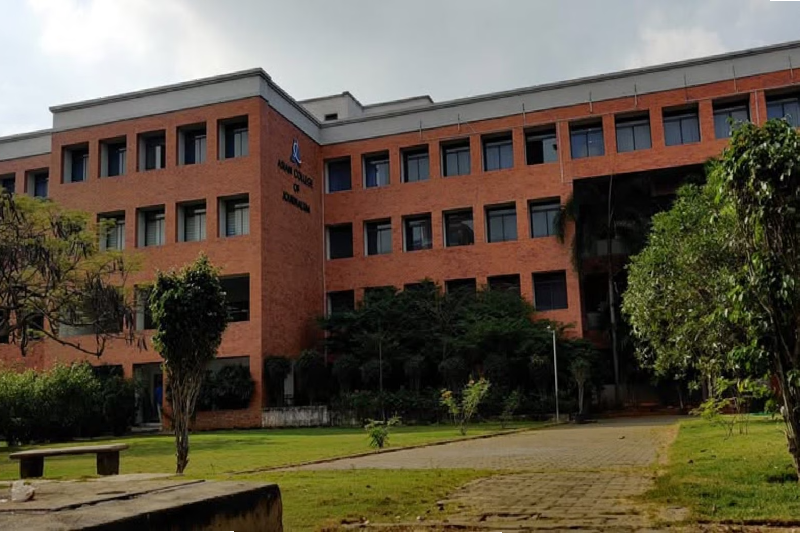
Asian College of Journalism to Launch Climate Change Media Hub: Building the Future of Environmental Reporting
The Asian College of Journalism (ACJ), Chennai, is stepping into a pivotal role in strengthening climate journalism in India. With climate change and environmental degradation becoming pressing global challenges, ACJ has announced the launch of its Climate Change Media Hub in partnership with Germany’s Interlink Academy. Scheduled to begin in November 2025, the hub aims to empower journalists to cover climate change with greater accuracy, depth, and multimedia expertise.
The initiative comes at a time when reliable, research-backed, and impactful reporting on the environment is more critical than ever. By focusing on capacity building, networking, and resource creation, the hub is expected to provide journalists across India with the tools and mentorship needed to narrate climate stories that resonate locally and globally.
Two Flagship Programmes to Drive the Initiative
At the core of the Media Hub are two intensive eight-month-long flagship programmes, designed to train and mentor journalists with varied levels of experience in climate reporting.
- Climate Change Residency Programme
- This programme is tailored for senior journalists in India with at least seven years of experience in climate change or environmental reporting.
- It is open to journalists attached to newsrooms who are willing to take a break from their current work as well as independent journalists seeking to deepen their expertise.
- The residency offers participants the time, mentorship, and resources to pursue in-depth climate stories, while also fostering a community of experienced professionals dedicated to advancing environmental journalism.
- Climate Change Mentorship Programme
- Designed for early-career journalists with two to three years of experience, this programme focuses on nurturing younger talent.
- Both newsroom journalists and freelancers—especially those associated with small or alternative media organisations—are encouraged to apply.
- Participants will receive one-on-one guidance from veteran journalists in the field, helping them sharpen their storytelling skills while producing impactful multimedia projects on climate change from their own regions.
The registration process for these programmes has already begun, with the last date to apply being October 3, 2025. Interested candidates can find details and application procedures on the official ACJ website: asianmedia.org.
Orientation, Training, and Mentorship
Both flagship programmes are structured to provide rigorous academic and practical exposure. Training modules will include:
- Expert-led sessions with subject specialists, climate scientists, and senior journalists.
- Hands-on orientation workshops in visual, audio, and digital storytelling.
- Access to ACJ’s state-of-the-art production and post-production facilities, ensuring that participants can create professional-quality multimedia reports.
- Use of ACJ’s library and academic resources, including specialised journals and climate research databases.
This mix of academic training and field-oriented mentorship ensures that participants not only strengthen their knowledge of climate science but also learn innovative ways to present complex issues to diverse audiences.
Financial and Professional Support
Recognising the challenges many journalists face when pursuing niche areas such as climate reporting, ACJ has ensured that both programmes come with financial and logistical support.
- Participants will receive stipends, helping them dedicate time and focus to their projects.
- They will have access to production support, covering essential resources needed to bring their stories to life.
- Workshops will be organised to enhance skills in multimedia production, digital reporting, and storytelling for wider reach.
This comprehensive package underlines ACJ’s commitment to reducing barriers for journalists who want to pursue high-quality climate reporting.
Why a Climate Change Media Hub Now?
The decision to launch this hub reflects a growing recognition of the role of media in shaping climate awareness and policy discourse. In India, where climate change directly affects millions—through floods, droughts, air pollution, and rising temperatures—the need for credible reporting is acute.
While international outlets have often led climate coverage, initiatives like ACJ’s Media Hub aim to ensure that local journalists tell local stories with global impact. By creating a space for collaboration between senior and emerging reporters, the hub also seeks to bridge generational knowledge gaps in climate journalism.
A Collaborative Vision
The partnership with Germany’s Interlink Academy adds international expertise and cross-cultural perspectives to the programme. Journalists trained under this initiative will not only gain from Indian mentors but also be exposed to global best practices in climate communication.
This international collaboration is expected to foster stronger networks, enabling Indian journalists to connect with peers worldwide and contribute to a more unified voice on climate issues.
The Bigger Picture
The launch of the Climate Change Media Hub positions ACJ as a trailblazer in media education and climate reporting. Over the next three years, by running successive cohorts of its residency and mentorship programmes, the institution hopes to build a critical mass of trained journalists equipped to cover climate issues responsibly, creatively, and impactfully.
By investing in the capacity of journalists today, ACJ is indirectly investing in how the public perceives and responds to the climate crisis tomorrow. This effort ensures that stories of resilience, adaptation, policy change, and community innovation reach audiences with the urgency and authenticity they deserve.
Conclusion
The Asian College of Journalism’s Climate Change Media Hub is more than an academic initiative—it is a timely response to one of humanity’s greatest challenges. By offering structured mentorship, cutting-edge facilities, and financial support, ACJ is laying the groundwork for a new era of responsible and impactful climate journalism in India.
As the November 2025 launch approaches, the hub is set to become a beacon for journalists determined to shape the climate conversation—one story at a time.



